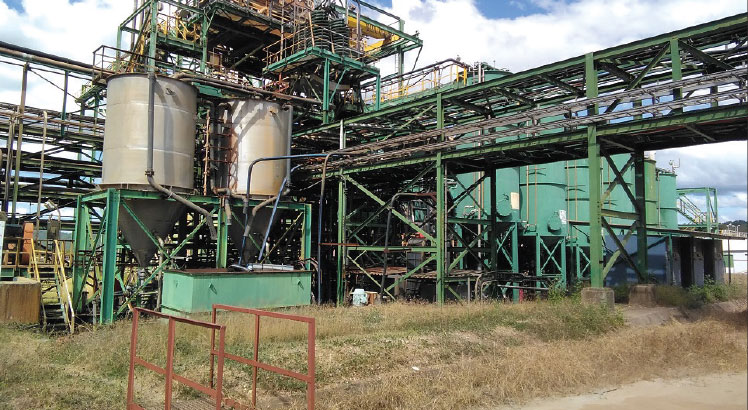Malawi urged on mining transparency
The Extractive Industry Transparency Initiative (EITI) has challenged Malawi to improve on disclosing data on extractive licensing activities, including transparency on licenses and contracts but also disclosures on beneficial ownership.
In the context of systematic disclosures, the EITI Board challenges Malawi to further its efforts related to routine and timely extractive industry disclosures through government and company systems.
This is contained in an assessment on EITI implementation, where the country has achieved a moderate overall score of 80 points.

It comes as people in the country continue to pile pressure on government to be open on its dealings with mining companies, especially on contracts and revenue.
It reads: “On Transparency, Malawi also reached a moderate score [70 points. However, there is scope for further improvements on disclosing data on extractive licensing activities, including transfers and non-trivial deviations from statutory procedures, transparency in the full texts of licenses and contracts, and beneficial ownership disclosure.
“There is scope for Malawi to use its EITI implementation as a diagnostic tool of government and companies’ audit assurance practices and to strengthen project-level reporting to support improvements in domestic resource mobilisation.”
It has since recommended that corrective actions be taken on industry engagement, contract and license allocations contracts, and beneficial ownership.
Other areas are on data quality, distribution of revenues, social and environmental expenditures, data accessibility and open data, but also outcomes and impact.
Eiti board chairperson Helen Clark has since commended Malawi for using the Eiti to support reforms and address corruption risks in the mining sector, including efforts to improve licensing.
The Eiti board chairperson said: “The Eiti Board encourages Malawi to continue strengthening extractive sector management, particularly through disclosures of beneficial owners, contracts and project-level data.”
In an interview yesterday, Natural Resources Justice Network (NRJN) chairperson Kosam Munthali issues of no disclosure have been a thorn for a long time, especially with the law seemingly aiding it.
He said: “Section 38 of the Mines and Minerals Act states that all investors shall be at liberty to disclose data and reports two years after concluding what they are doing. This is problematic and retrogressive.
“Legislators need to act on this for an amendment. We need to know the type of licences issued, owners, nothing is happening. We need to work to ensure that we start walking the talk on disclosures.”
But Parlimanentary Committee on Natural Resources chairperson Werani Chilenga said the Malawi Eiti is not working for Malawians.
“We asked them from the word go that whenever they produce yearly reports, before they send them to wherever, they should be bringing them to Parliament. But they have never done that.
“So, it’s a transparency issue between Mweiti and the Eiti Board. Mweiti exists for the Ministry of Finance, not for Malawians. Since it’s establishment, matters of transparency have not changed,” he said.
Revenue figures Mweiti reports over times show that the country is still not doing well, as they are plummeting, so too the mining sector’s contribution to Gross Domestic Product (GDP).
The dream had been to grow the GDP contribution of the mining sector to 20 percent by 2020, but the report now suggests of a potential growth to 20 percent by 2023, providing the same song that the country has had since the 2014/15 fiscal year.
Malawi joined as an Eiti candidate country in October 2015. The country published its first Eiti report covering the 2014/15 financial year in April 2017. The Mweiti process covers mining, oil, gas and forestry.





